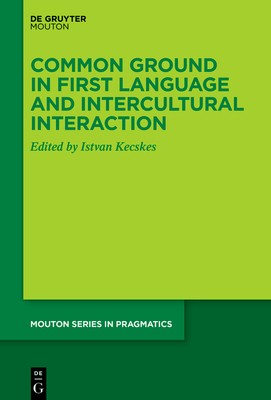
- Mēs nosūtīsim 10-14 darba dienu laikā.
- Izdevējs Walter de Gruyter
- Gads: 2023
- Lapas: 300
- ISBN-10 : 3110766728
- ISBN-13 : 9783110766721
- Formāts: 15.5 x 23.1 x 2.8 cm, kieti viršeliai
- Valoda: Anglų
- Extra -10% atlaide, ievadot kodu: EXTRA
Common Ground in First Language and Intercultural Interaction + bezmaksas piegāde! | Bookbook.lv
Atsauksmes
Apraksts
In recent years the traditional approach to common ground as a body of information shared between participants of a communicative process has been challenged. Taking into account not only L1 but also intercultural interactions and attempting to bring together the traditional view with the egocentrism-based view of cognitive psychologists, it has been argued that construction of common ground is a dynamic, emergent process. It is the convergence of the mental representation of shared knowledge that we activate, assumed mutual knowledge that we seek, and rapport as well as knowledge that we co-construct in the communicative process.
This dynamic understanding of common ground has been applied in many research projects addressing both L1 and intercultural interactions in recent years. As a result several new elements, aspects and interpretations of common ground have been identified. Some researchers came to view common ground as one component in a complex contextual information structure. Others, analyzing intercultural interactions, pointed out the dynamism of the interplay of core common ground and emergent common ground.
The book brings together researchers from different angles of pragmatics and communication to examine (i) what adjustments to the notion of common ground based on L1 communication should be made in the light of research in intercultural communication; (ii) what the relationship is between context, situation and common ground, and (iii) how relevant knowledge and content get selected for inclusion into core and emergent common ground.
10 EXTRA % atlaide
Kupona kods: EXTRA
Akcija beidzas 7d.10:07:32
Atlaides kods derīgs pirkumiem no 10 €. Atlaides nav kumulatīvas.
Derīgs tikai pirkumiem tiešsaistē.

- Izdevējs Walter de Gruyter
- Gads: 2023
- Lapas: 300
- ISBN-10: 3110766728
- ISBN-13: 9783110766721
- Formāts 15.5 x 23.1 x 2.8 cm, kieti viršeliai
- Valoda: Anglų
In recent years the traditional approach to common ground as a body of information shared between participants of a communicative process has been challenged. Taking into account not only L1 but also intercultural interactions and attempting to bring together the traditional view with the egocentrism-based view of cognitive psychologists, it has been argued that construction of common ground is a dynamic, emergent process. It is the convergence of the mental representation of shared knowledge that we activate, assumed mutual knowledge that we seek, and rapport as well as knowledge that we co-construct in the communicative process.
This dynamic understanding of common ground has been applied in many research projects addressing both L1 and intercultural interactions in recent years. As a result several new elements, aspects and interpretations of common ground have been identified. Some researchers came to view common ground as one component in a complex contextual information structure. Others, analyzing intercultural interactions, pointed out the dynamism of the interplay of core common ground and emergent common ground.
The book brings together researchers from different angles of pragmatics and communication to examine (i) what adjustments to the notion of common ground based on L1 communication should be made in the light of research in intercultural communication; (ii) what the relationship is between context, situation and common ground, and (iii) how relevant knowledge and content get selected for inclusion into core and emergent common ground.

Atsauksmes